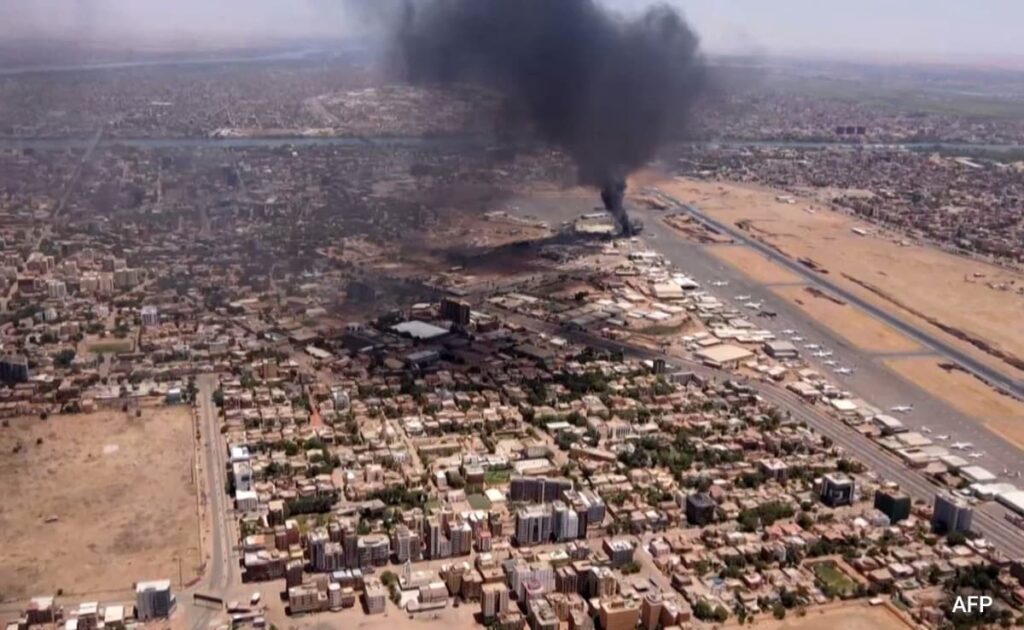An aerial view of black smoke rising above the Khartoum International Airport.
Brutal clashes between the Sudanese army and a paramilitary group, which included tank combat in densely populated Khartoum and fighter jet airstrikes, have left the nation in terrible condition, causing deaths, serious unrest, and damage to public spaces in densely populated locations.
A recent video taken in the north of Sudan’s capital demonstrates the damage caused by the battle between the Sudanese Army and a paramilitary group known as the Rapid Support Forces.
The video was shared by a Twitter user named Hassana Al-Ghanzi with a caption in Arabic, which, when translated into English, reads “Bahri.”
Watch the video here:
بحري 🥲 pic.twitter.com/jkqh3jlme9
— حسنه الگنزي (@AllanziHusna) April 24, 2023
Khartoum North, or Khartoum Bahri, is a city in Khartoum State, lying to the north of Khartoum City, the capital of Sudan.
The fighting erupted between the army and the RSF paramilitary group in Sudan’s Khartoum on April 15 and has killed as many as 427 people, knocked out hospitals and other services, and turned residential areas into war zones. Millions of people remain trapped in their homes in the capital, Khartoum, running short on food and water.
According to the United Nations Office for the Coordination of Humanitarian Affairs, over 3,700 people have been injured in these clashes.
Meanwhile, a US-brokered ceasefire in Sudan appears to be partially holding, but there is no sign the warring parties are ready to seriously negotiate, the UN special envoy on Sudan said on Tuesday.
This suggested “that both think that securing a military victory over the other is possible,” envoy Volker Perthes told the U.N. Security Council. “This is a miscalculation.”
UN Secretary-General Antonio Guterres described the violence and chaos in Sudan as “heartbreaking.” The power struggle puts Sudan’s future at risk and could cause suffering for years and set back development for decades, Guterres said.
The United Nations has moved hundreds of staff and family members to Port Sudan from Khartoum.
The United Nations plans to establish a hub in Port Sudan to continue working in the country, where, even before the violence broke out, nearly 16 million people-one-third of the population-were in need of humanitarian aid.
(With inputs from Reuters)


